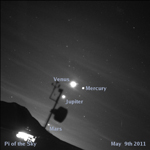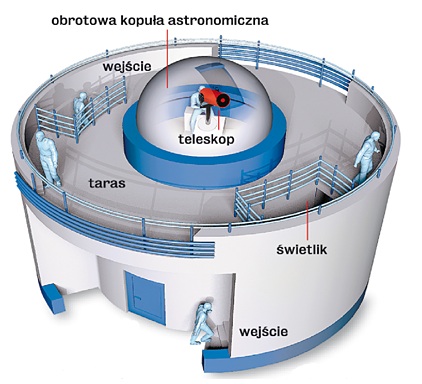instead of the classic 'face to close to the page' , display you have given
For this I apologize. I should have said it in a more subdued tone. I was irked by "world knows better than you guys with your NC". Not all of us spin nonsense about perceived superiority of a certain nation. What can I say - I ignore such posts, since responding to them pollutes any good thread.
I agree with the second part of your post since I know quite well that this is just a student exercise in passion, knowledge and innovation. But I support programs like ARC, IASC (International Astronomical Search Collaboration) or even programs of building those mini school-based observatories in Poland because they stimulate interest in certain branches of science and engineering. Kids from all other the words, including those from the Copernicus city of Toruń, have fun discovering and naming planetoids and asteroids - but that's the subject of another post.
Contribution of Polish Kids to discovery and naming asteroidsThe International Astronomical Search Collaboration (IASC) is an educational outreach program for high schools and colleges, provided at no cost to the participating schools.
International Astronomical Search Collaboration, Discovery Hall of Fame, web page is somewhat outdated, but provides some information about naming of discovered astronomical objects:
iasc.hsutx.edu/index_files/Page685.htm
The page shows a list of seven discoveries of asteroids, numbered and catalogued by the Minor Planet Center (Harvard). This process takes 3-5 years to complete, at which point the asteroid can be officially named.
Names are proposed to the International Astronomical Union (IAU). It is this international assembly that officially designates the names of asteroids and other minor planets in the Solar System.
There is one Polish entry:
Asteroid: 2007 GH2, Name: Not Named, School: ZSO #7, Location: Szczecin Poland
Another source suggested that the proposed name is "Szczecin". To verify it I went through a lot of noise in many web pages and finally found the IASC data discovery page:
iasc.scibuff.com
The data below is extracted from that page.
Newly discovered objects are put on a provisional list. This means that the Minor Planet Center will assign a provisional designation number and it will stay there until confirmed some time later by some other means. The current list of Provisional Discoveries contains 396 objects, discovered since year 2006, when the program started. Five of those belong to Polish schools.
#371 - Asteroid: 2011 HT24, School: The 10th Prof. Stefan Banach School Group, Location: Toruń Poland, 2011-04-30
#374 - Asteroid: 2011 HS31, School: The 10th Prof. Stefan Banach School Group, Location: Toruń Poland, 2011-04-30
#356 - Asteroid: 2011 FX88, School: Mikołaj Kopernik High School, Location: Sierpc Poland, 2011-04-02
#349 - Asteroid: 2011 FJ49, School: The 10th Prof. Stefan Banach School Group, Location: Toruń Poland, 2011-04-02
#233 - Asteroid: 2010 MN2, School: Mikołaj Kopernik High School, Location: Sierpc Poland, 2010-06-22
The list of Numbered Discoveries, confirmed and ready to be named, is much shorter: total 21 entries. Two of them are Polish.
#21 - Asteroid: 2010 CH1, Number: 279377, Name: To be chosen, School: School: The 10th Prof. Stefan Banach School Group, Location: Toruń Poland
#11 - Asteroid: 2007 GH2, Number: 241099, Name: Szczecin, School: ZSO #7, Location: Szczecin Poland
Putting it all in some perspective: there are about 250 schools from dozen of countries involved in various IASC projects. There are some claims that the full list of Polish discoveries since 2006, when the IASC program was introduced to Poland, consists of close to 30 astronomical objects, but I could not confirm it. So let's stick to 5 + 2 facts.
2012 University Rover Challenge: May 31 - June 2, 2012, Mars Desert Research Station, Hanksville, Utah
URC Kickoff: Teams will meet at 11:00am MDT on Thursday, 31 May in the parking lot of the Whispering Sand Motel in Hanksville. After an introductory briefing, they will drive out to MDRS for a quick site tour. In the afternoon on Thursday, teams will conduct initial weigh-ins, and deliver their presentations to the judging panel. The action will continue with the field competition events on Friday and Saturday!
Ten teams participate in this year's competition: one from Poland, two from Canada, seven from USA. Poland is represented by Scorpio-2 from Wrocław University of Technology - classified last year at the fourth position.
The last year's overall winner, team Magma-2 from Białystok University of Technology, does not participate this time. They were busy during past 12 months, participating in several international exhibitions, such as Hightech Mechatronica 2012 (March/April 2012) in Netherlands. The event brought together engineers and programmers specializing in mechatronics and high-tech systems. The fair attracted over 60 exhibitors.
From Scorpio-2 diary, in Polish:
We were out of luck yesterday evening. Four of our six tires have been punctured during test drives, probably as the result of rapid and reckless driving. Unfortunately we had no replacement parts. A little bit of creativity and in few hours later the vehicle has been restored. Let us hope that this will not happen again during the competitions.
This day began with a briefing and vehicles' weighing at the vicinity of Mars Desert Research Station. Unfortunately, we exceeded the maximum weight limit, so we had to remove two middle wheels. This should not significantly affect the off-road capacity of the vehicle. By lowering the weight we can install more cameras and additional batteries, which will increase the rover's life span.
At 17.30, during the first out of five challenges, we presented our team and the project to the judges. We have very positive feelings, however, the results will not be announced until the end of the competition. Now this is time to prepare for tomorrow's jobs. We are still arming our vehicle with additional devices, which might be helpful. We are facing two tasks tomorrow: Equipment Servicing Task in the morning and Site Survey Task in the afternoon.
Before the nightfall we are going into the desert again to test all the items.
From URC facebook:
Congrats to our podium finishers at URC2012:
1. York University
2. Brigham Young University
3. Cornell University
More to follow as the staff returns from the field!Well, no medal this time for the Poles.
 PolishForums LIVE / Archives [3]
PolishForums LIVE / Archives [3]


